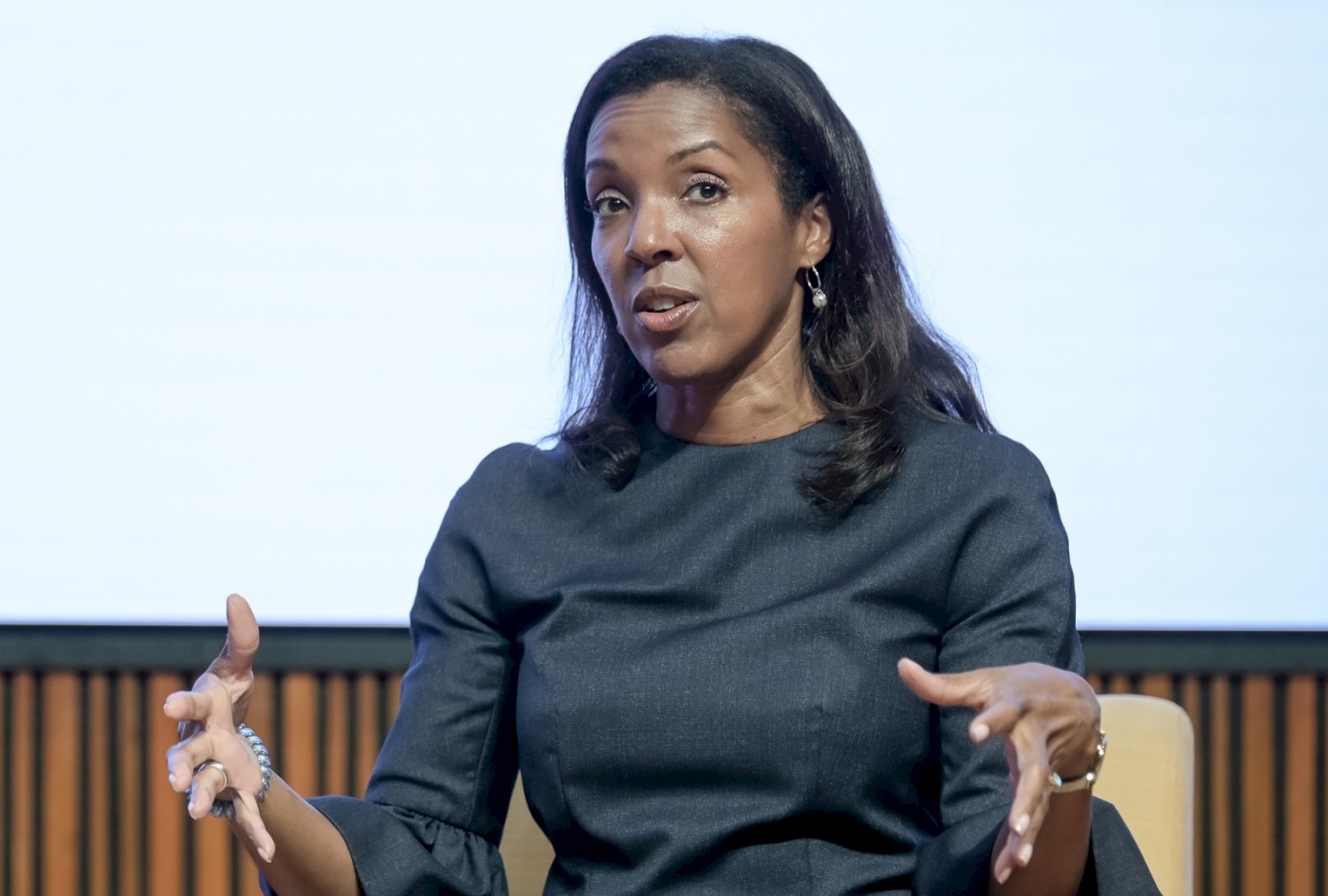
“I enjoyed studying organisational psychology and appreciated its context of learning about human behaviour in work life. I applied the organisational psychology lens to business education because it was so much a part of management and leadership, which is the core of any business school curriculum. I have found that studying psychology lent itself to understanding organisations.”
Erika H. James, Dean, Wharton School of the University of Pennsylvania
Dean James of the Wharton School of the University of Pennsylvania, with a background in organisational psychology, is now leading the prestigious management school as its first female dean. She demonstrates the applied benefits of interdisciplinary learning, with her academic and professional journey showcasing a seamless transition from the humanities to management. While establishing her as an indispensable thought leader, her success also symbolises breaking of the glass ceiling.
In an interview with Dean James, who visited Ahmedabad University as part of the Wharton Faculty International Seminar, she shared her insights on the importance of interdisciplinary learning, the role of education in addressing global challenges, the necessity of gender diversity in the workplace across various sectors, the pursuit of responsible research, and the potential synergies between the Wharton School and Ahmedabad University. Reproduced below is the complete interview of Dean James.
Q. One of the key aspects of learning at both Ahmedabad University and Wharton is interdisciplinarity. In this context, how can business studies be made more interdisciplinary?
A. The education delivered at Ahmedabad University entails the integration of multiple disciplines in its curriculum, bringing together specialists in different fields, including social scientists, engineers, economists, and others, which equips students with various skills to address real-life challenges. Interdisciplinary learning is also gaining importance in the educational spectrum. Students might have a passion for a particular topic, discipline, or field, but they will understand it better in the context of all the other disciplines. So, if we can create an opportunity for people to have access to multiple disciplines while they are pursuing their studies at the university, they will become more well-rounded thinkers and professionals. Incentivising faculty to collaborate, listening to students, and providing access to knowledge and information across various disciplines can empower educators and students to develop innovative solutions for problems.
Q. Fostering female empowerment through education is critical. How do you suggest we can promote greater female participation in higher education and concomitantly also in the labour force?
A. At the collegiate level, there’s at least gender parity; if not, in many cases, more women attend college now than men. And I think upon graduation, early career professionals also maintain that gender parity; however, later in their professional journey, we start to see the shift. More men are rising to higher ranks than women. This could also be sector-dependent. So, the more technological or quantitative the sector, the fewer women are seen to rise in those organisations.
The good news is that there is a lot of attention now on trying to understand the exact point in one’s career trajectory where we see women leaving the labour force or not continuing to advance at the same level as men. Once we understand why this is happening, we try to identify solutions for helping them to address it.
The other good thing is that today we have more women leading technology, financial firms, or higher education institutions. We should get the attention around those stories so that we start to normalise women in those kinds of roles. Instead of looking at it as an anomaly, it should become part of the process.
Q. A crucial area of discourse is how education can contribute to enhancing environmental sustainability. How can we incorporate such global issues in business studies?
A. We have an increasing number of students who care about these issues and want to do the necessary work to understand how to address these issues, such as the environment, climate, and sustainability issues. They are also pairing it with, for example, a finance or operations major because they are starting to see that integrating environmental sustainability issues is essential for addressing society's complex challenges.
Q. What is the importance of responsible research and how can higher education institutions integrate it into their curriculum?
A. It is important to understand the lens through which students conduct their research. They should evaluate the question they are trying to answer and what value that question brings in making the world a better place. That must be fundamentally at the root of any research. The people being studied, the communities being addressed, and the processes by which students study something are all part of responsible research. So, the more we naturally integrate research integrity and ethics questions into what we do, the greater validity will the outputs of our scholarship have.
Q. Regarding synergies between the Wharton School and Ahmedabad University, what do you envisage in terms of research collaborations?
The kinds of questions students at Ahmedabad University ask are similar to those that students at Wharton also ask. The research and the scholarship that your faculty are doing are very much tied into our faculty's work. Having established this kind of relationship, it is incumbent upon both our institutions to ensure that going forward, we should facilitate visits by your faculty at Wharton and enable our faculty to come back here to Ahmedabad University. We should also pool in our joint resources to support collaborations with each other.